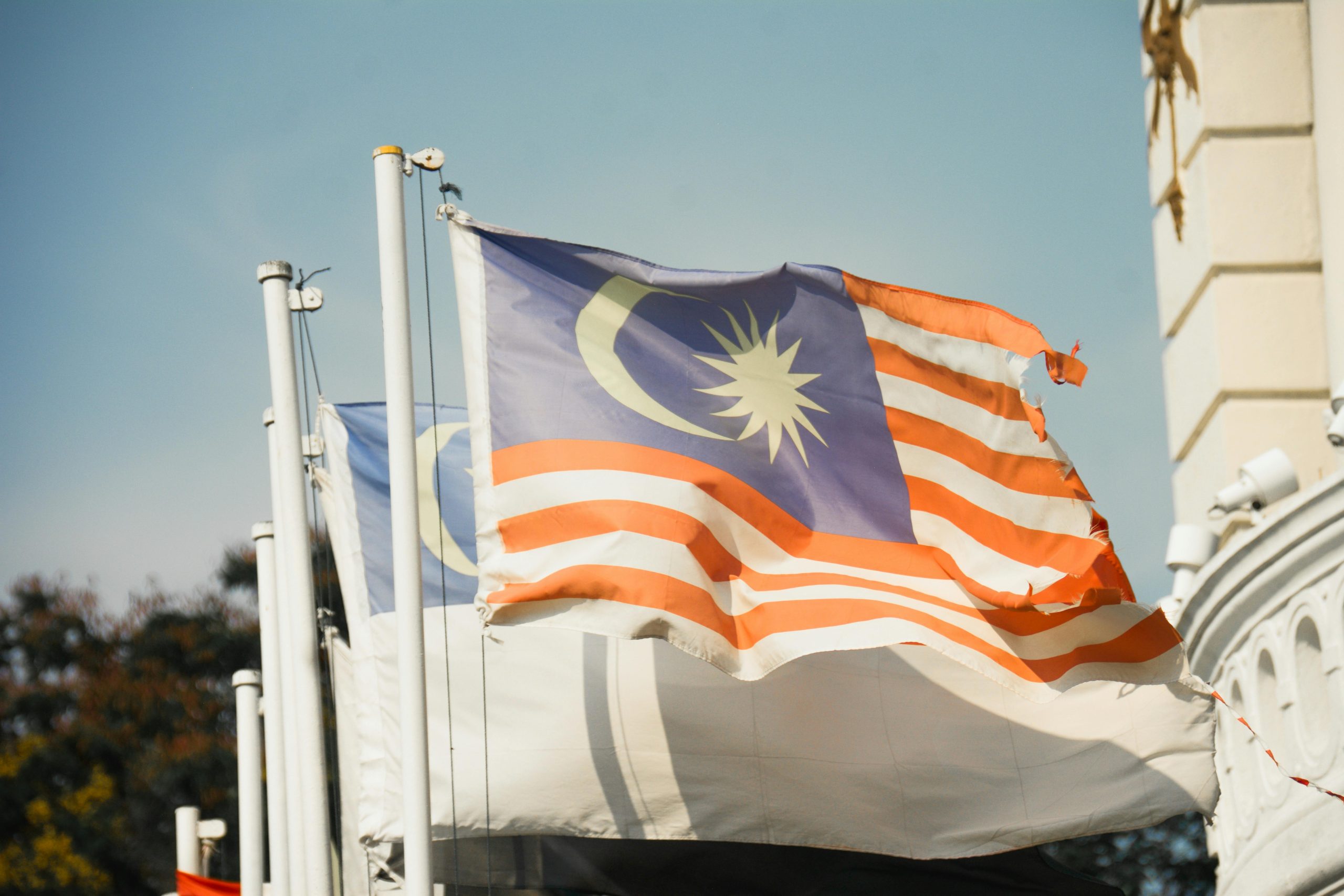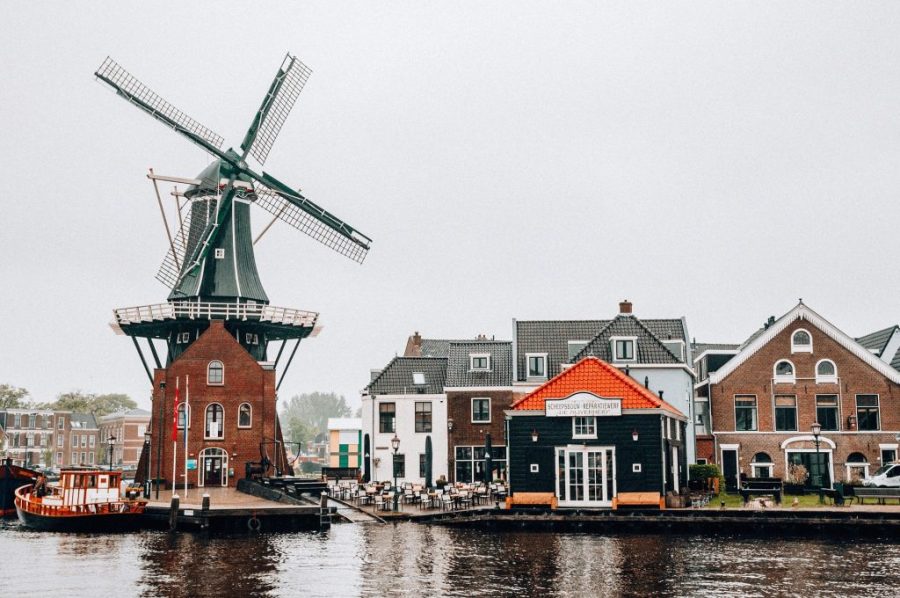Student visa for Ireland: Requirements & process
Get ready to study on the Emerald Isle! Learn about the student visa for Ireland: requirements, costs, and how to apply.
The Emerald Isle is known not only for its lush landscapes and being the home of Guinness, but also for its world-class education system, recognized for both excellence and innovation. Ireland’s universities consistently rank among the best globally, attracting over 300,000 international students each year to study fields like technology, business, and the humanities.
If you’re here, it’s probably because the idea of joining a growing community of forward-thinkers has crossed your mind. Maybe you’re thinking about expanding your knowledge, discovering new career paths, or even studying and working abroad in one of Europe’s leading tech hubs. But first, you’ll need to get started on your student visa for Ireland.
Getting your visa sorted isn’t the quickest or easiest process, and that’s exactly why we’re here. At Holafly, we not only keep you connected with unlimited data while you’re in Ireland, but we’ve also created this handy guide to walk you through what you’ll need, what it’ll cost, and how to apply.
Why apply for a student visa in Ireland?
If you’re planning to study in Ireland for 90 days or more, you’ll need a student visa. This applies to language courses, undergraduate and postgraduate degrees, as well as other specialized studies.
For stays of up to 90 days, citizens of certain countries can enter Ireland without a visa, as long as the visit is for tourism or a short-term course.
When planning your studies in Ireland, make sure to check whether you need a student visa or if you can skip this step. Take a look at the list below to find out.
Countries that do not require a visa to enter Ireland
Keep in mind that if you’re from one of these countries, you can enter Ireland with just a valid passport for up to 90 days. However, if you plan to stay longer, you’ll need to register with Irish Immigration and get the appropriate residence permit.
| European Union (EU) and European Economic Area (EEA) | Latin America | Other countries |
| All member countries. | Argentina, Bolivia, Brazil, Chile, Costa Rica, El Salvador, Guatemala, Honduras, Mexico, Nicaragua, Panama, Paraguay, Uruguay. | Andorra, Antigua and Barbuda, Australia, Bahamas, Barbados, Belize, Botswana, Canada, South Korea, Dominica, United States, Grenada, Israel, Japan, Lesotho, Malaysia, Malawi, Maldives, Mauritius, Monaco, Nauru, New Zealand, Samoa, Saint Kitts and Nevis, San Marino, Saint Lucia, Seychelles, Singapore, Swaziland, Tonga, Trinidad and Tobago, Tuvalu, Vanuatu. |
Countries that do require a visa to enter Ireland
Citizens of these countries need to apply for an Irish student visa before traveling, submitting the required documents and meeting the criteria set by Irish authorities.
| Latin America | Africa | Asia | Middle East | Eastern Europe and the Balkans |
| Colombia, Cuba, Dominican Republic, Ecuador, Haiti, Jamaica, Peru, Suriname, Venezuela. | All countries except Botswana, Lesotho, Malawi, Mauritius, Seychelles, South Africa, and Swaziland. | All countries except Japan, Malaysia, Singapore, and South Korea. | All countries. | Albania, Armenia, Azerbaijan, Belarus, Bosnia and Herzegovina, Georgia, Kazakhstan, Kosovo, North Macedonia, Moldova, Montenegro, Russia, Serbia, Ukraine, Uzbekistan. |
Types of visas for studying in Ireland
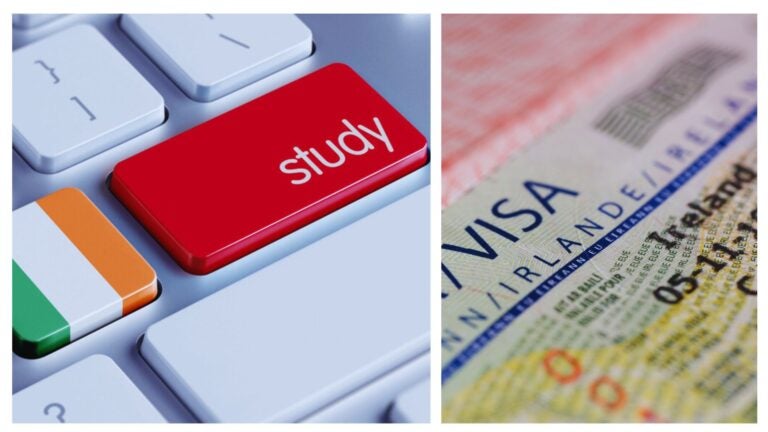
Short Stay Visa (C)
The short-term “C” visa is ideal if you’re planning to study in Ireland for up to three months. It’s perfect for quick courses like language intensives or specialized training sessions. This option gives you a chance to learn without committing to a longer stay. Keep in mind, this visa doesn’t allow you to work while you’re there.
Study and Work Visa
The Study and Work Visa in Ireland lets international students balance their academic programs with paid work during their stay. It’s especially popular among those looking to improve their English skills while gaining real-world experience in an international setting. This visa is valid for eight months (six months of study plus a two-month break) and can be renewed up to two times.
Long Stay Visa (D)
The long-term “D” visa is for students planning to study in Ireland for more than 90 days. It covers university degrees, postgraduate programs, and extended language courses.
Advantages of student visas in Ireland
Choosing to study in Ireland opens up a range of advantages, including work rights and options for your dependents. Here’s a look at the main benefits linked to the country’s primary student visas.
Short-term “C” visa
- Temporary stay: Up to 90 days in Ireland, suitable for short courses.
- Flexibility: Offers the opportunity to study in Ireland without long-term commitments.
- Simple application process: Completed online, making the process easier for applicants.
- Opportunity: To experience Irish culture and landscapes.
Study and work visa
- Work permit during studies: It allows students to work legally up to 20 hours a week during the school term and up to 40 hours a week during official holidays.
- Extended duration: Total duration of 8 months, including 25 weeks of study and an additional vacation period.
- Access to international work experience: Working in Ireland while you study gives you valuable international experience, boosts your resume, and opens up new career opportunities.
Long-term “D” visa
- Higher education: For undergraduate, postgraduate, or long-term language courses at Irish institutions.
- Work permit: Visa holders can work up to 20 hours per week during term time and full-time during holidays, making it easier to support their studies and gain valuable work experience.
- Possibility of accompaniment: In some cases, close family members like spouses or children can join the student during their time in Ireland, but this depends on meeting specific criteria and getting approval from immigration authorities.
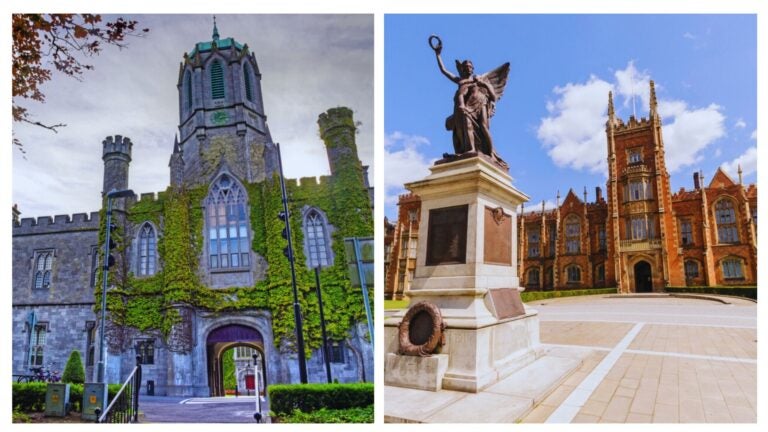
Requirements and documentation for student visa types in Ireland
Short Stay “C” Visa
- Acceptance letter: From a recognized educational institution in Ireland.
- Proof of financial funds: Proof of solvency to cover expenses during your stay.
- Medical insurance: Coverage valid in Ireland for the duration of your stay.
- Visa application form: Complete the online visa application form available on the official Irish immigration website.
- Passport: Original and copy of the personal data page and all pages with stamps or visas.
- Photographs: Two recent passport-size photographs, in color and with a white background.
- Proof of accommodation: Proof of accommodation during your stay, such as a hotel booking, a host’s invitation letter, or a rental agreement.
- Travel itinerary: Include details of your trip, such as round-trip flights and travel plans within Ireland.
- Application fee: Attach proof of payment of the visa application fee.
Study and work visa
- Minimum age: At least 18 years old.
- Enrollment in a recognized course: Be enrolled in an approved educational program lasting at least 25 weeks at an institution recognized by Ireland’s Department of Justice.
- Financial solvency: Prove you have sufficient funds to cover your living expenses, approximately $8,150.
- Medical insurance: Have valid health insurance for the entire duration of your stay in Ireland.
- Criminal record: Have no criminal record that could prevent you from entering the country.
- Application form: Complete the online form through the AVATS system.
- Proof of payment: Receipt proving payment of course fees in accordance with the criteria mentioned above.
- Photographs: Two recent color passport-size photos.
- Passport: Original and copy of passport valid for at least 12 months.
Long-Term “D” Visa
- Application form: Complete the online form through the AVATS system.
- Acceptance letter: Be accepted into a course of study.
- Tuition payment: You’ll need to have made a payment toward your course fees. If the course costs less than $7,000 the full amount must be paid. For courses above that a minimum of $7,000 should be settled upfront.
- Proof of accommodation: Provide evidence of where you will be staying during your time in Ireland.
- Financial solvency: Prove you have sufficient funds to support yourself.
- Medical insurance: Have health insurance that covers any potential issues during your stay.
- Valid passport: Have a passport that is valid for at least 12 months.
- Photographs: Two recent color passport-size photos.
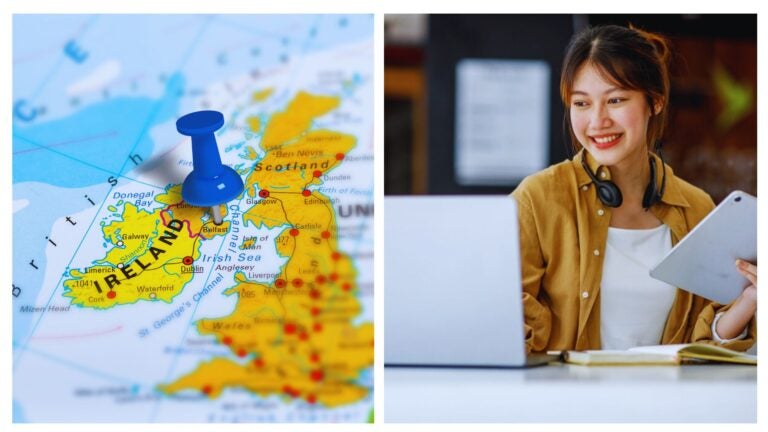
Interviews and questions
Generally student visa applications for Ireland do not require an in-person interview. But sometimes immigration might ask for one to get more information about your study goals, future plans, and financial resources.
Where do I apply for a student visa in Ireland?
The visa application is submitted online through the AVATS system. After completing it, you’ll need to print out a summary and bring it, along with your supporting documents, to the visa office or embassy in your home country. Be sure to follow any specific instructions provided once you finish the online application.
How much does a visa to study in Ireland cost?
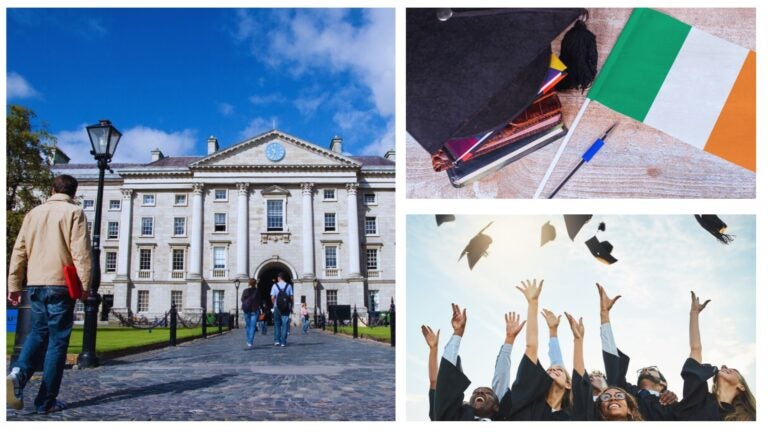
The Ireland student visa cost is $70 for a single-entry visa and $120 for a multiple-entry visa.
Once you get to Ireland, you’ll have to register with immigration and pay a $350 fee to receive your Immigration Residence Permit (IRP). Don’t forget to factor in health insurance expenses, which vary based on your plan and how long you stay, as well as proof of financial means.
If you’re getting ready to study in Ireland, don’t just focus on visa fees, insurance, and where you’ll stay. Make sure you’ve got a plan for staying online, too. The good news is, you won’t have to worry about hunting for Wi-Fi spots or messing around with local SIM cards!
With Holafly Plans, you’ll have unlimited internet from day one in Ireland with a convenient monthly plan. It ensures you stay connected to get your work done, keep up with your studies, and stay in touch with family without any interruptions.
Important: If you are a frequent traveler and want to stay connected without worrying about expensive roaming or looking for a new SIM at every destination, Holafly’s subscription plans are for you. With a single eSIM, enjoy internet in more than 170 countries for a fixed price and no surprises on your bill. Travel without limits and connect easily and securely! 🚀🌍

How long does it take to get a student visa for Ireland?
Getting a student visa for Ireland can take some time, depending on the type of visa and how busy immigration services are. It usually takes anywhere from 4 to 8 weeks. To avoid last-minute stress, it’s a good idea to start the process at least 3 months before your planned travel date.
Advice on the visa application process for studying in Ireland
Navigating the student visa process for Ireland can be tricky, especially if you’re not used to handling this kind of paperwork. That’s why we’ve rounded up three legal support options to help guide you every step of the way.
1. Sean O Toghda Solicitors
- They specialize in student visa guidance, visa extensions, and immigration status changes. They also offer support with family reunification and residence permits for relatives of EU citizens.
- Location: Dublin, Ireland.
- Website: www.sotsolicitors.ie
2. Sinnott Solicitors
- Extensive experience in immigration law, including student visa applications, immigration status changes, and residence permits.
- Location: Dublin and Cork, Ireland.
- Website: www.sinnott.ie
3. Eurovisado
- Comprehensive management of study visas, providing personalized advice and assistance throughout the legal process.
- Location: They offer online services, simplifying the process from any location.
- Website: www.eurovisado.com
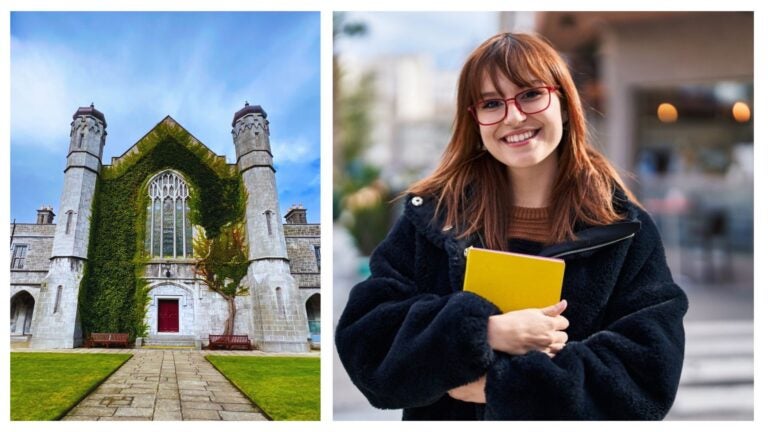
Frequently asked questions about visas for studying in Ireland
We recommend starting the application process at least three months before your planned travel date to ensure that your visa is ready in time.
Yes, it’s possible to renew your student visa in Ireland, provided you’re still enrolled in an eligible program and can show you have the financial means to continue your stay.
Yes, if you have a valid student visa you can work while studying. During the school term you’re allowed up to 20 hours per week and during holidays you can work full time.
No, having a student visa doesn’t guarantee permanent residency. But the work and study experience you gain in Ireland can improve your chances of qualifying for other visas that might lead to residency down the line.
If your application is denied, you’ll get a notice explaining why. Depending on the reason, you might be able to appeal the decision or submit a new application addressing the issues mentioned.
Usually, student visas don’t allow family members to come along. However, exceptions are sometimes made for postgraduate programs or long-term research projects.
Upon arrival, you must register with the Garda National Immigration Bureau (GNIB) and obtain your Immigration Registration Card (IRP) within the first 90 days.
The English level you need varies depending on the course you choose. Some schools might ask for proof of English proficiency, but language courses usually don’t require any prior knowledge.





 Language
Language 


















 No results found
No results found



